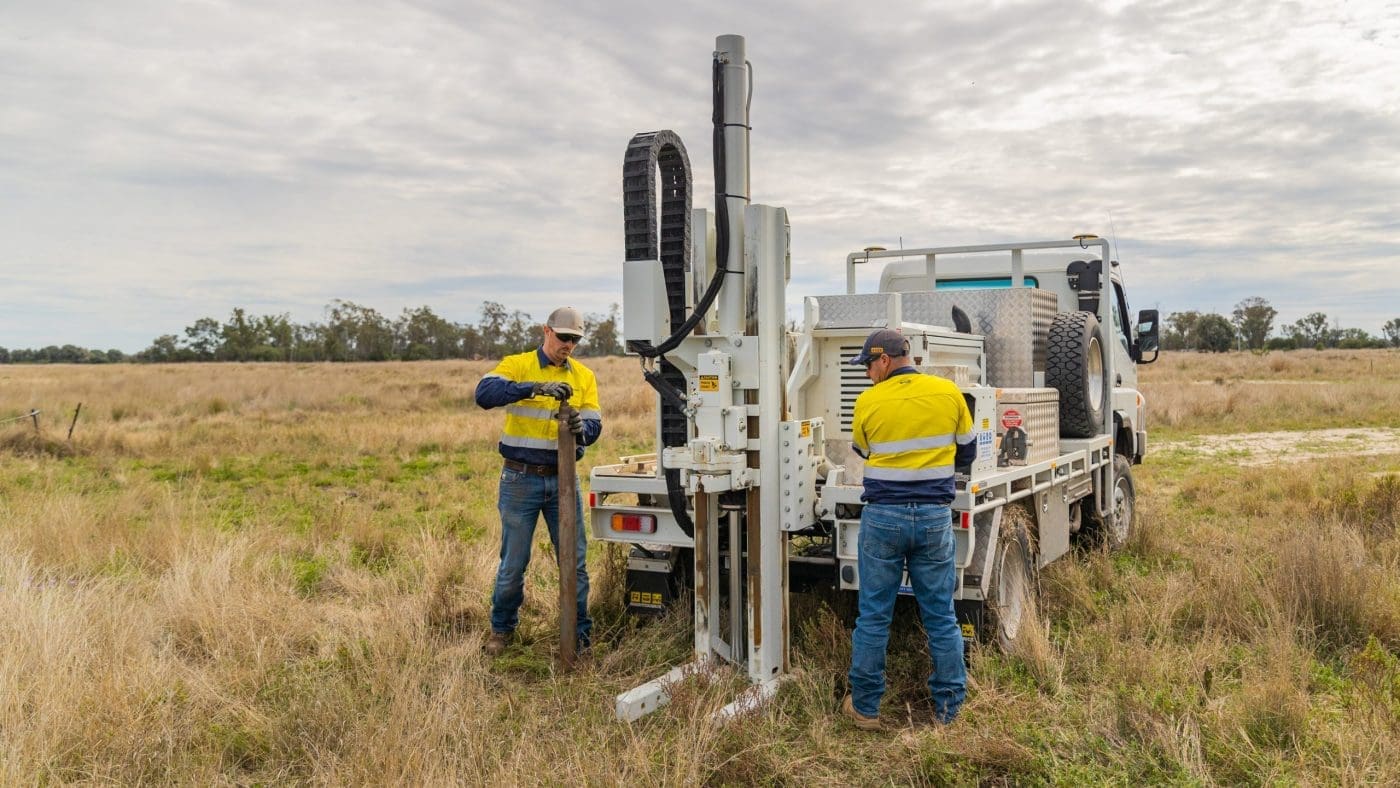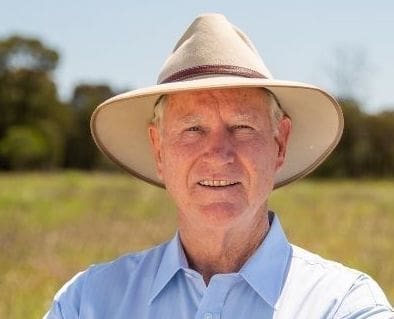
Core samples being taken in a paddock to measure the amount of carbon in the soil. Photo: Carbon Link
THE Federal Government is expected to make its first-ever large-scale issuance of soil carbon credits today, with the first of a group of four carbon projects successfully making it through the regulatory process.
Run by specialist soil carbon service provider, the first two projects have generated a combined 151,312 Australian Carbon Credit Units. The price of ACCUs has been hovering around $35 for most of this year.
The Archer family from Rexton, near Goondiwindi, and the Lawrie family from Moora Plains, near Rockhampton, are expected to be the first of Carbon Link’s group to be issued the credits.
Dr Terry McCosker founded Carbon Link as a derivative of his well-known grazing consultancy RCS. As a long time believer in the potential of sequestering carbon in agricultural soils, he said the issuance of credits has been 20 years in the making.
“This is the first large-scale issuance of high integrity soil carbon credits done on real-world operations at scale, going through droughts, pasture diebacks, the whole works – as far as I am aware,” Dr McCosker said.
“Soil carbon is a very complex thing to measure, it has taken 10 years of research and development and technology originally conceived by CSIRO, to reach this point.
“It has taken new legislation in 2011, three methodology changes from 2014 to 2021, strict compliance with the regulations and the courage of the early adopting producers to reach this incredible milestone.”
Soil carbon has created a lot of excitement in recent years after the Wilmot Cattle Company used an American scheme to sell $500,000 worth of credits to Microsoft. The Carbon Link projects either submitted to the regulator, or finalising audit, are expected to generate 10 to 20 times that income – under the highly regulated conditions of the Australian carbon market.
Since the Wilmot deal, many have been waiting for the Australian scheme to issue credits as it is known as having the highest integrity in the world. In more than seven years, it has only credited one other project with 1800 ACCUs, which is a fraction of what it is being issued to Carbon Link’s producers.
The early adopting producers have learnt plenty about the rigour of the Australian system, with some of the projects being audited five times since they submitted them in the first half of last year.
How do you earn soil carbon credits?
Starting a soil carbon project involves measuring the amount of carbon in the soil through core samples and satellite imagery to set a ‘baseline’. Project-holders then need to change practices to promote more carbon storage in the soil.
A second measurement is taken five years later with ACCUs issued for any increase in carbon – one ACCU represents one tonne of CO2 or the equivalent. They need to keep that carbon in the soil for 25 years or hand the ACCU back.
Project holders need to demonstrate that their activities have resulted in the carbon increase and that the increase in carbon would not have happened under “business as usual”.
Baselines for the first of the Carbon Link projects were taken in 2016, with the second round of baselines submitted to the regulator last year.
Dr McCosker has been giving some limited information about the projects since they were submitted. Last year he showed how Bonnie Doone in Central Qld was sequestering 50kg of CO2 per 1kg of beef.
Potential premiums in soil carbon
While the average price for ACCUs has been hovering around $35 for most of this year, some credits are worth more than others. One of the main reasons companies will pay more for ACCUs is to include the project in marketing material.
Carbon Link has been drafting up a series of reasons why soil carbon credits should be worth more than the average credit, pointing out that they represent genuine carbon sequestration rather than avoided emissions, they are well measured and they are attached to ‘low carbon beef’.
Dr McCosker said properties sequestering soil carbon are better equipped to handle droughts.
“They increase the water holding capacity as carbon is added to the soil, for example Rexton can now hold an additional 200,000t of water, slowing entry into drought and speeding up recovery. That water holding capacity has allowed carrying capacity to increase by two-and-a-half times,” he said.
“A drawdown of water has an impact on the greenhouse effect, conservatively estimated at over 5 times the CO2 value of soil carbon.
“The Archers beef production is carbon negative to the tune of 10.6 t of CO2 for every tonne of livestock carried over the five years.”
Will the floodgates open on soil carbon?
The issuance of the ACCUs will make a lot of information about the projects publicly available, with the industry regulator keeping a public registry.
Many in the science community have been waiting for soil carbon projects to yield credits so they can learn more about the relationship between carbon and agricultural soils.
Dr McCosker has long talked about the significant commercial potential of soil carbon and said the first issuance of ACCUs has demonstrated that potential.
“We know many producers have been sitting on the fence waiting for soil carbon to become real,” he said.
“It is now as real as it can get and Carbon Link is gearing up to handle an influx of applications.”

